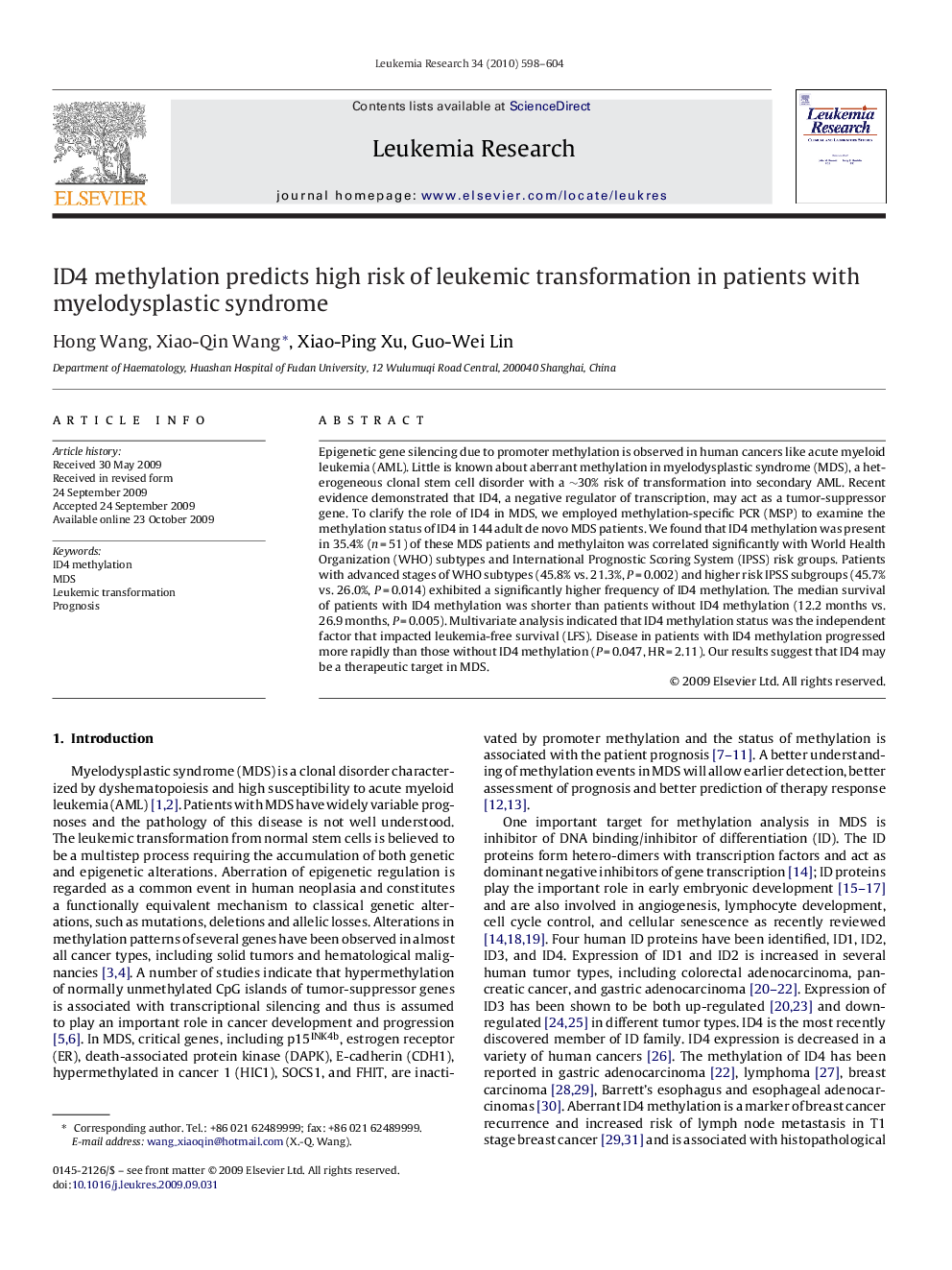| Article ID | Journal | Published Year | Pages | File Type |
|---|---|---|---|---|
| 2137542 | Leukemia Research | 2010 | 7 Pages |
Epigenetic gene silencing due to promoter methylation is observed in human cancers like acute myeloid leukemia (AML). Little is known about aberrant methylation in myelodysplastic syndrome (MDS), a heterogeneous clonal stem cell disorder with a ∼30% risk of transformation into secondary AML. Recent evidence demonstrated that ID4, a negative regulator of transcription, may act as a tumor-suppressor gene. To clarify the role of ID4 in MDS, we employed methylation-specific PCR (MSP) to examine the methylation status of ID4 in 144 adult de novo MDS patients. We found that ID4 methylation was present in 35.4% (n = 51) of these MDS patients and methylaiton was correlated significantly with World Health Organization (WHO) subtypes and International Prognostic Scoring System (IPSS) risk groups. Patients with advanced stages of WHO subtypes (45.8% vs. 21.3%, P = 0.002) and higher risk IPSS subgroups (45.7% vs. 26.0%, P = 0.014) exhibited a significantly higher frequency of ID4 methylation. The median survival of patients with ID4 methylation was shorter than patients without ID4 methylation (12.2 months vs. 26.9 months, P = 0.005). Multivariate analysis indicated that ID4 methylation status was the independent factor that impacted leukemia-free survival (LFS). Disease in patients with ID4 methylation progressed more rapidly than those without ID4 methylation (P = 0.047, HR = 2.11). Our results suggest that ID4 may be a therapeutic target in MDS.
